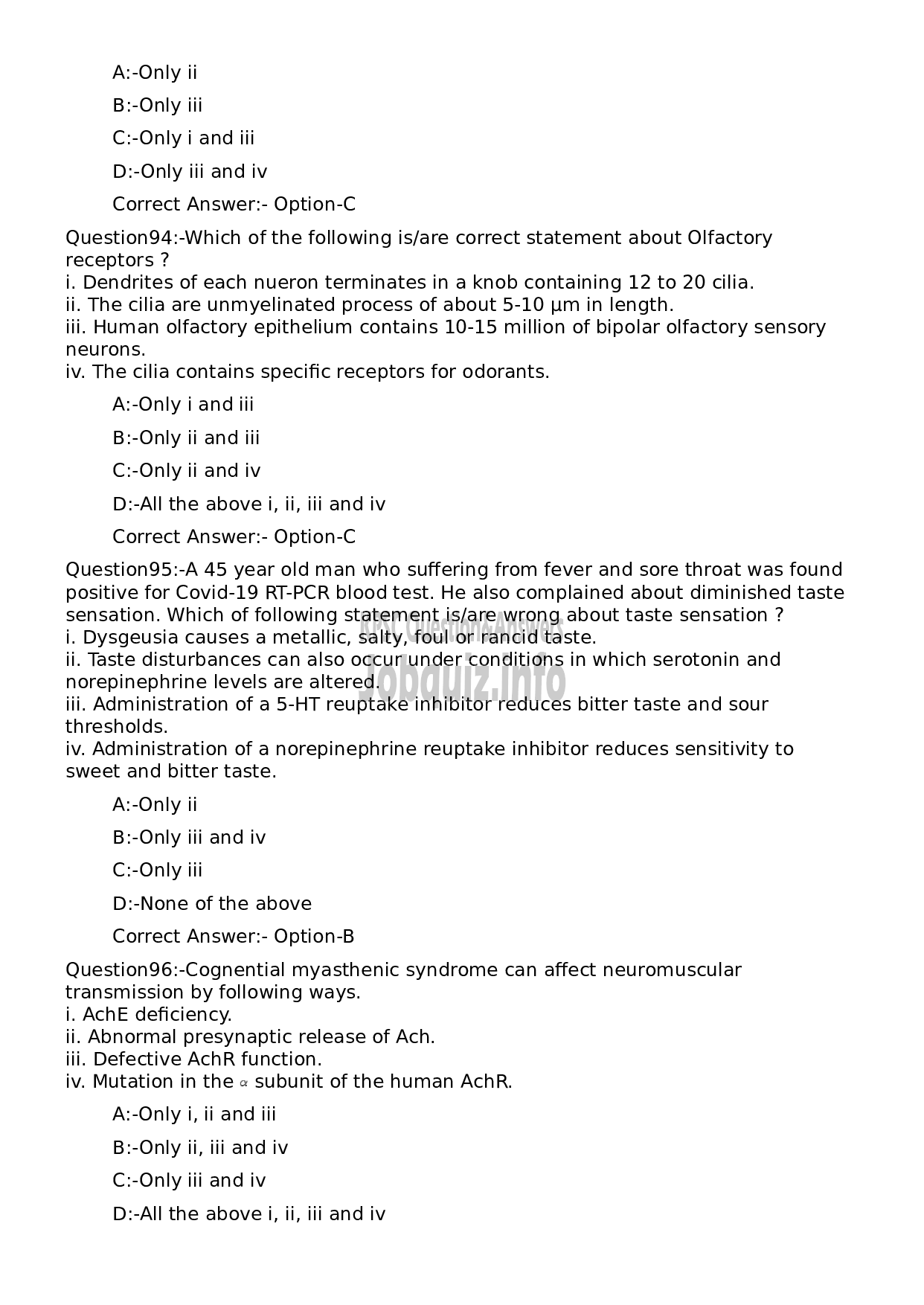Kerala PSC Previous Years Question Paper & Answer
Page:23
Below are the scanned copy of Kerala Public Service Commission (KPSC) Question Paper with answer keys of Exam Name ' Assistant Professor Physiology and Biochemistry' And exam conducted in the year 2023. And Question paper code was '052/2023/OL'. Medium of question paper was in Malayalam or English . Booklet Alphacode was ''. Answer keys are given at the bottom, but we suggest you to try answering the questions yourself and compare the key along wih to check your performance. Because we would like you to do and practice by yourself.
A:-Only ii
B:-Only iii
C:-Only i and iii
D:-Only iii and iv
Correct Answer:- Option-C
Question94:-Which of the following is/are correct statement about Olfactory
receptors ?
i. Dendrites of each nueron terminates in a knob containing 12 to 20 cilia.
ii. The cilia are unmyelinated process of about 5-10 um in length.
iii. Human olfactory epithelium contains 10-15 million of bipolar olfactory sensory
neurons.
iv. The cilia contains specific receptors for odorants.
A:-Only i and iii
B:-Only ii and iii
C:-Only ii and iv
D:-All the above i, ii, iii and iv
Correct Answer:- Option-C
Question95:-A 45 year old man who suffering from fever and sore throat was found
positive for Covid-19 RT-PCR blood test. He also complained about diminished taste
sensation. Which of following statement is/are wrong about taste sensation ?
i. Dysgeusia causes a metallic, salty, foul or rancid taste.
ii. Taste disturbances can also occur under conditions in which serotonin and
norepinephrine levels are altered.
iii. Administration of a 5-HT reuptake inhibitor reduces bitter taste and sour
thresholds.
iv. Administration of a norepinephrine reuptake inhibitor reduces sensitivity to
sweet and bitter taste.
A:-Only ii
B:-Only iii and iv
C:-Only iii
D:-None of the above
Correct Answer:- Option-B
Question96:-Cognential myasthenic syndrome can affect neuromuscular
transmission by following ways.
i. AchE deficiency.
ii. Abnormal presynaptic release of Ach.
iii. Defective AchR function.
iv. Mutation in the « subunit of the human AchR.
A:-Only i, ii and iii
C:-Only iii and iv
D:-All the above i, ii, iii and iv
